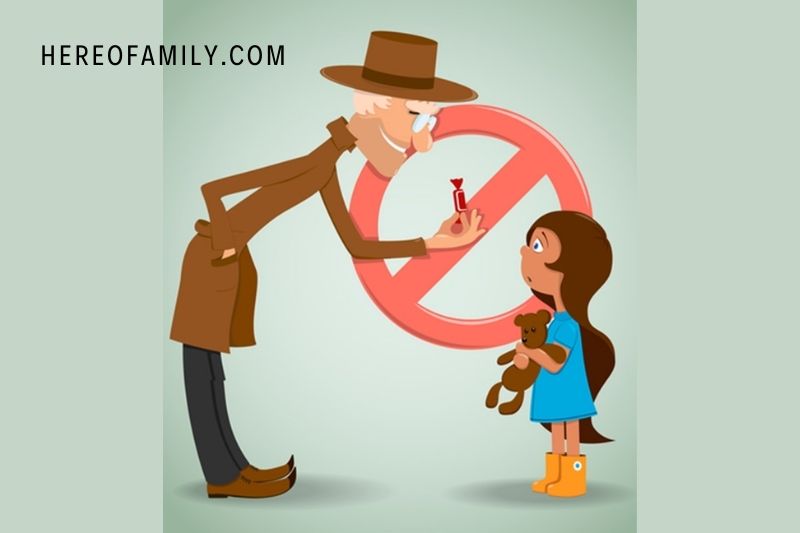As the summer nears and kids begin to spend more time outside, it’s important to remember a few safety tips for kids. First and foremost, always supervise your children when they are near water, whether it be a pool, lake, or ocean. It only takes a few seconds for an accident to happen, so being vigilant is important. Secondly, make sure your kids are using sunscreen and staying hydrated. Heatstroke is a real danger, especially for young children.
Contents
- 1 Basic Safety Tips Every Child Should Know
- 1.1 1. Contact information
- 1.2 2. Never go anywhere with a stranger
- 1.3 3. Road safety
- 1.4 4. If you get lost, stay where you are
- 1.5 5. Do not share personal information online
- 1.6 6. Respect dangerous things
- 1.7 7. Your body is yours only
- 1.8 8. Don’t keep secrets
- 1.9 9. When and how to call 000
- 1.10 10. Water safety
- 1.11 11. Trust your instincts
- 1.12 12. Protect your skin
- 1.13 13. Do not eat anything given by a stranger
- 1.14 14. Do not climb the fence
- 1.15 15. Playing or experimenting with fire is not allowed
- 2 FAQ
- 3 Conclusion
Basic Safety Tips Every Child Should Know

1. Contact information
You can substantially assist your children in times of need by giving them basic contact information. Children should be able to tell you their entire name, your name, their residence, and a local landmark, and older children should also know how to dial a phone number. Because young toddlers forget quickly, you should do this as often as possible.
2. Never go anywhere with a stranger
Your kid should understand that they should never allow themselves to be dragged away by a stranger, regardless of the circumstances. Inform children that if someone says, “Your mother instructed me to grab you and take her to her right away,” they should remain and phone for assistance. Remind them that if an emergency arises, you will send a grandmother, aunt, or someone your kid knows and trusts, not a stranger.
It’s also a good idea to teach your kid a ‘safety word’ that only you and they understand. If you need to send someone your kid doesn’t know well, you may give them the safety word, and your child will know it’s okay to travel with that person.
3. Road safety
Children are more susceptible to traffic accidents and injuries when there is no adult supervision. In addition to never allowing your children to play near highways unaccompanied, you may lessen danger by training them to:
Before crossing the street, look right, then left, then right again, and only cross if you are holding the hand of an adult or older kid.
- Don’t run near a busy street.
- If you are walking on a road with no sidewalk, always face the traffic (better yet, avoid these roads altogether)
- Understand the meaning of traffic signals and lights.
- When riding a bike, scooter, or skateboard, always exit from the curbside. Always wear a helmet.
4. If you get lost, stay where you are
Wandering or worrying if your youngster becomes lost will add to the confusion. Teach your children that they should go to the counter and ask for assistance if they can’t locate you in the store. Reinforce the rule that they are not permitted to leave the store! You might also train them to ask a parent with another youngster for assistance.

Nowadays, children begin using computers at an early age, and internet safety tips for kids’ education are required. Teach your children never to give out information about their school, where they live, how old they are, or their phone numbers.
6. Respect dangerous things
Certain items, such as matches, knives, and other deadly weapons, should never be played with by youngsters. While you may attempt to put items out of reach, it’s also vital to educate children that certain things are just for adults and that they should respect that.
7. Your body is yours only
Teaching your children the difference between good and poor touch might help them recognize when someone has acted improperly with them. Explain that if anybody other than their mother or father touches their body, they should report it immediately and call for assistance.
Of course, you must be cautious about educating children that there are certain situations when it is OK for others to touch them, such as in the doctor’s office or the school nurse if they are injured at school. This is something you should talk about with your kid regularly.
8. Don’t keep secrets
Children are often instructed to keep anything a friend or sibling did private, but educate them that if they feel the action is hazardous, damaging, or nefarious, they should not be afraid to inform you. Assure them that if they divulge their secrets, you will do your best not to pass judgment.
9. When and how to call 000
Youngsters must understand how to report an event to 000 and when it is proper. Discuss various scenarios and how to handle them, and role-play typical mishaps in and around the house to get them comfortable with making a call.
10. Water safety
Whether you have a pool at home, you must educate your children about pool safety. Enrolling your kid in swimming classes is crucial, but training youngsters to avoid pools, dams, lakes, streams, or water tanks without your supervision, never rush by the pool, and always swim between the flags.
11. Trust your instincts
Teach your children about instinct and the significance of trusting their instincts to be safe. Teach children that if they are hesitant about an activity they have been urged to perform, they should not do it – even if it means walking away from the rest of the group.
12. Protect your skin
One of the essential things you can teach your kid about sun protection is covering up on hot days and always using sunscreen while going outside. Teaching children to protect their skin from an early age will protect them for many years to come.
13. Do not eat anything given by a stranger
It would help if you educated your child about the hazards of ingesting food offered to them by a stranger. No matter how enticing the treat is, if it is given to your child by a stranger, they should not consume it. Teach your child that accepting food from anybody is harmful. If someone offers you food without your permission or in your absence, ask them to decline respectfully.
14. Do not climb the fence
Your child may be playing ball when it suddenly bounces off and lands within a fence. Teach your child that going over a fence is never a good way to retrieve anything. If anything like this occurs, your child should seek the assistance of an adult but should never approach a fence.
15. Playing or experimenting with fire is not allowed
Your child should understand that playing with fire is strictly prohibited whether or not you are there. Your child may only be near the fire if you are there and have given your permission. Make certain that any fire extinguishers are securely out of reach of your children.
Some relevant posts:
- Does Baby Powder Cause Cancer? Complete Guide 2023
- Best Baby Breathing Monitor: Keep Baby Safe and Sound 2023
- Is Wifi Safe For Babies? Top Full Guide 2023
- How To Help Choking Baby? Top Full Guide [2022]
- Check Neighborhood Safety 2023: Top Full Guide
- Is Daycare Safe For Infants 2023? Top Full Options Here!
- Where To Put Baby Monitor? Top Full Guide [2022]
- When Should You Babyproof Your House? Top Full Guide 2023
- Bathroom Safety For Kids 2023: Top Full Options
FAQ
What is safety, for example?
Safety is a condition of being shielded from possible danger or anything meant to protect and avoid damage. Wearing a seat belt is an example of safety. A safety belt is an example of safety.
What is a good slogan for safety?
10 of the Best Safety Phrases
The absence of injuries does not imply the existence of safety. Every work is completed correctly and on schedule. Invest in the future by working safely now. Every employee has the right to take a break from work.
Conclusion
When it comes to keeping kids safe, there are some basic safety tips that every parent should know. From teaching kids how to stay safe around strangers to making sure they always wear a seatbelt in the car, these safety tips will help keep your kids out of harm’s way. Thanks for reading!
